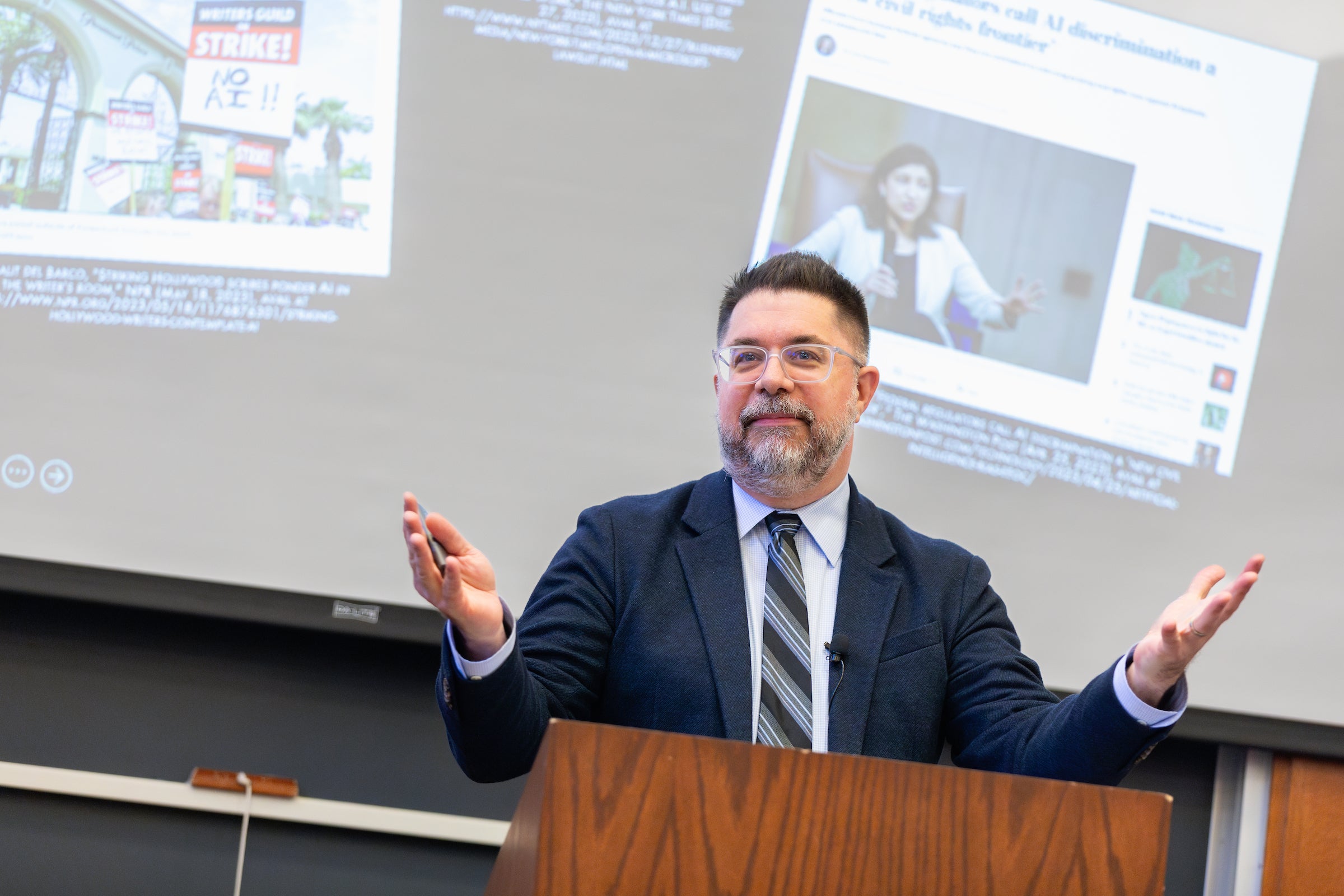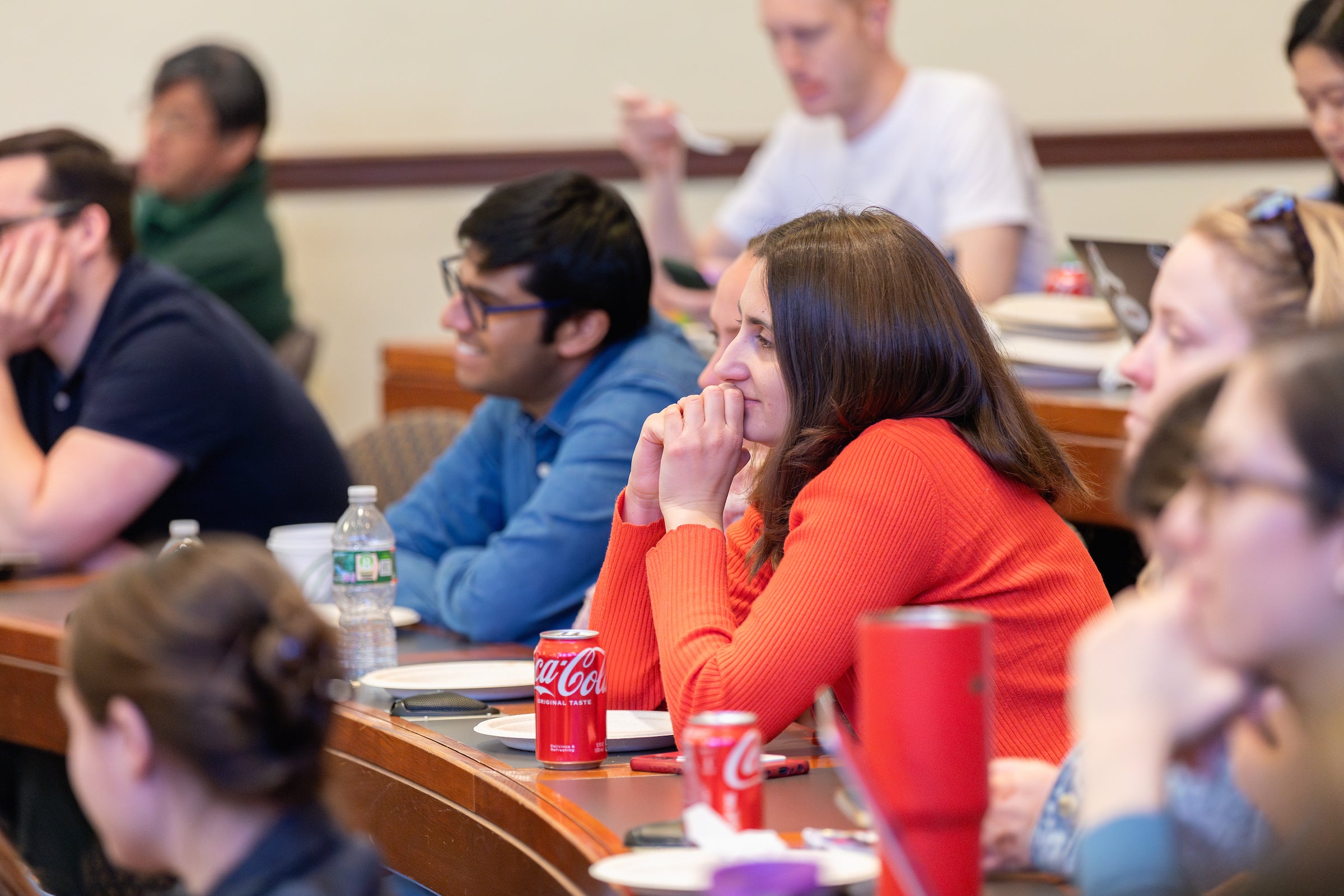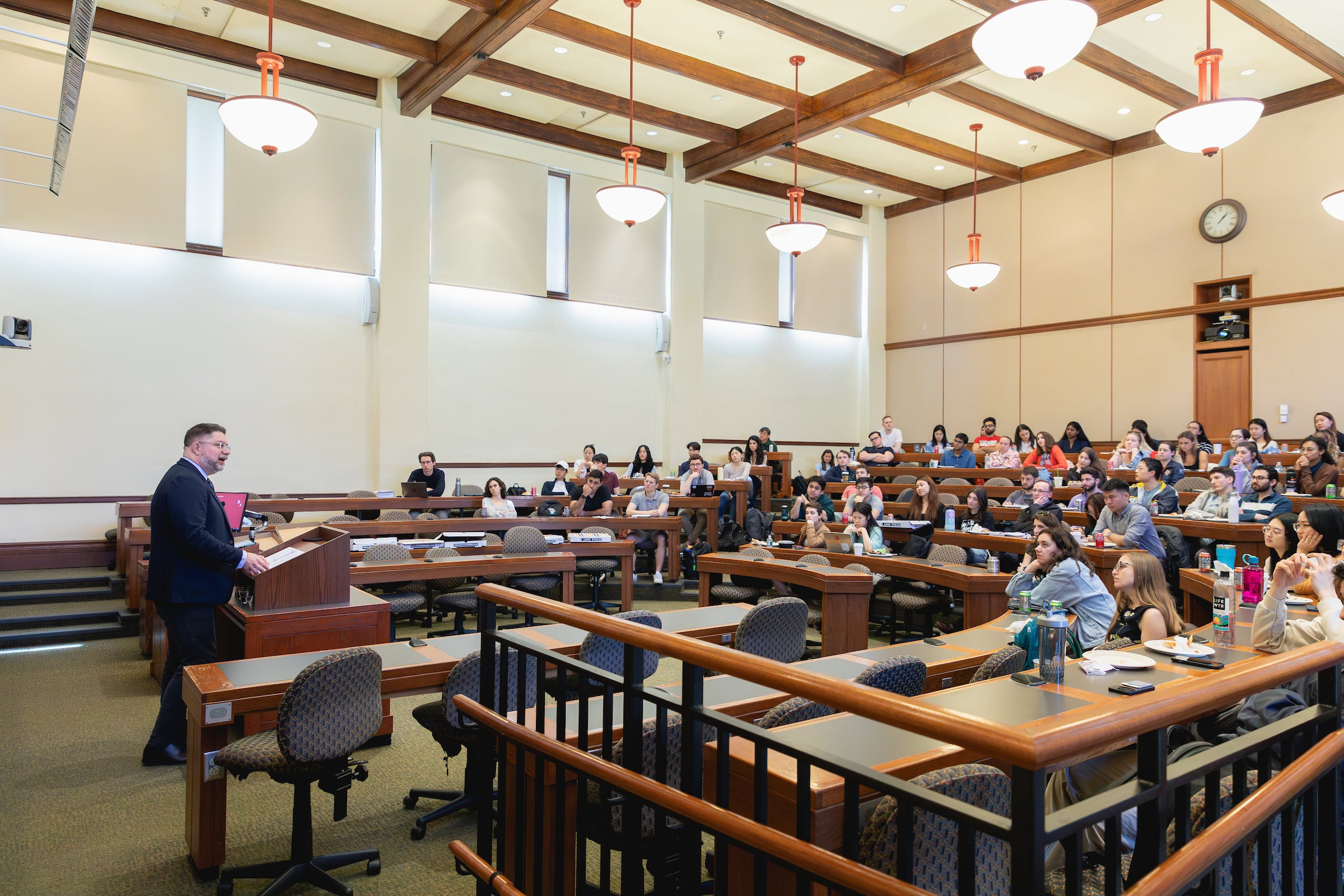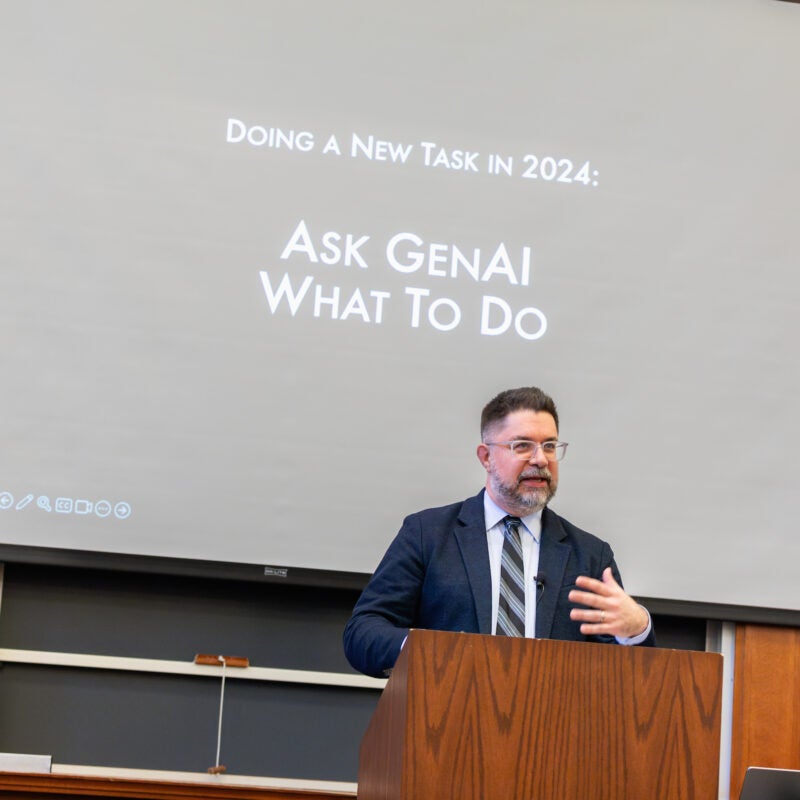Clinical Professor Christopher Bavitz made a small bit of Harvard Law School history last week by becoming the first professor to write a Last Lecture with a little help from artificial intelligence.
As a specialist in intellectual property and media law and vice dean for Experiential and Clinical Education, Bavitz found the topic of AI especially resonant. And he assured a classroom crammed with graduating students that they’d be hearing much more about it in the future.
“AI is not going to replace humans,” he said, quoting Harvard Business School Professor Karim Lakhani. “But humans with AI will replace humans without AI.”
Bavitz was one of four professors chosen by class marshals to impart final pieces of knowledge and advice in a series of Last Lectures to members of Harvard Law’s soon-to-graduate Class of 2024. His talk focused on an interest he shares with many of his students, the possibilities of generative AI.
“I’m thinking a lot about legal and creative implications of these tools,” he said. “But I’m also thinking pragmatically about whether and when and how to incorporate them into my life and my professional activities.”
With tongue somewhat in cheek, Bavitz reasoned that if AI could write successful wedding speeches and upvoted social media posts, it could certainly help with a Last Lecture. So, he adopted the name Claude Instant and logged into Harvard’s own AI Sandbox, asking first for general help in lecturing students who will soon graduate from a professional school. The initial results, he said, weren’t too promising: The program suggested topics like transitioning to the workforce, work-life balance, and giving back.



“These are fine, I guess — a little broad, heavy on the platitudes,” he said. “I don’t think they quite capture the sophistication of the intended audience for this talk.”
For his second attempt, he plugged in more specifics, that it was a law class seeking wisdom and encouragement. Once again, the results were appropriate but a bit generic: When AI suggested “the balance of ambition and contentment,” Bavitz joked, “I’m going to take that as the title of my next self-help book.”
Finally, he tried plugging in the actual texts of previous Last Lectures given by members of the HLS faculty, “rockstars across the board.” This time the results summarized specific issues that the lectures had focused on: aligning work with values and passions, developing strong relations and community, embracing uncertainty and change, finding inner strength and believing in something larger than oneself. All worthy topics, Bavitz said — but here again, something was missing.
“To go back to that list of speakers, it was a really extraordinary group — really, some of the most interesting people I know have done Last Lectures,” he told the audience. “And they do touch broadly on these sorts of themes. But the power and persuasiveness and the passion is not by any means captured in this summary. So, it feels like the process has been useful in some ways, but it also feels as if the heart and soul has been removed from this remarkable collection of talks. Maybe that’s inherent in any effort to distill simple themes from rich source material, and maybe the same thing would have happened if I’d asked a human being to cull through the talks.”
Thus, he said, his attempt to write an AI speech opened more questions than it answered. “It’s not even about whether humans or machines do things better, it’s about what better means,” he said. “It’s also about identifying circumstances where we might be at our best melding the inputs of humans and machines.”
“It’s not about whether humans or machines do things better, it’s about what better means.”
Some of those instances, he said, can be found in the realm of music and the arts. A longtime music fan himself, Bavitz was once the senior director of legal affairs for the EMI Music conglomerate, and lately hears plenty of discussion about the impact of AI on recording and performance. For instance, he noted, the copyright world was rocked last year by “fake Drake” — a major viral hit that purported to be a collaboration between superstars Drake and The Weeknd, but really included neither.
“It’s prompted important conversations about authenticity and about the state law right of publicity,” he said. “But I worry that the focus on the binary of ‘real vs. fake’ might oversimplify things a bit.”
Calling on music history, Bavitz recalled that artists were manipulating other artists’ work long before AI entered the picture. He noted the reggae producer Lee “Scratch” Perry, who popularized the “dub” technique of applying studio effects to transform an existing record, and the modern artist Holly Herndon, who creates AI versions of her own voice and invites others to create music with it. The future, he suggested, may belong to this kind of visionary artist.
“We should expect to be surprised and exhilarated and confused and concerned in equal measure by these technologies,” he said. “Resist the default to simple binaries. Embrace the possibility of outcomes that are wonderful and weird and maybe sometimes perplexing, but recognize that the answer is not always to be found in a simple either-or proposition.”
The same human/machine synthesis will be happening in law, Bavitz said, with AI transforming legal research just as Lexis and Westlaw once did.
“The tools will become more refined, and users will become more expert at using those refined tools, and we’re going to get into the exciting and fun and hard questions,” he explained. “You are about to run headlong into questions about melding of human and machine in doing the job you came here to learn how to do.”
But Bavitz said he was optimistic that the graduates could navigate these questions. “One of the reasons I’m moderately optimistic is that I get to know so many of you each year. … I am inspired every day by your creativity and your dedication to service and your commitment to doing things that are good and right.”
Want to stay up to date with Harvard Law Today? Sign up for our weekly newsletter.
